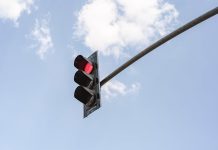Traffic congestion has a significant impact on residents, businesses and visitors. Recent studies have indicated that congestion costs Toronto commuters several billions of dollars annually in travel delays, vehicle operating costs and accidents. The City of Toronto, in conjunction with the Toronto Police Service, has launched a series of new initiatives to improve traffic flow and compliance with the City’s parking regulations. The changes include:
- Increased fines for unlawful stopping, standing, and parking on rush hour routes
- Implementation of a fixed fine system for parking offences
- Ticketing for expired licence plate validation stickers
- Towing habitual parking ticket offenders when found parked illegally
A $150 fixed fine will apply for stopping, standing, or parking a vehicle during rush hours, and for stopping, standing or parking a vehicle in a bicycle lane.
Rush hours can be from 6-10 a.m. during morning rush hour and 3-7 p.m. during evening rush hour. In some areas there may be times when daytime rush hour periods may be in effect. Drivers are urged to check signage and park legally at all times.
Fact Sheet
- On February 6 and 7, 2012, Toronto City Council adopted, with amendments, the Public Works and Infrastructure Committee’s recommendations regarding item PW11.2: Relieving rush hour congestion due to unlawful stopping, standing, and parking.
- This approval created new offences for stopping, standing, or parking a vehicle during rush hours and established fixed fines of $150 for such offences, (an increase from the current set fine of $40 for a no parking offence, and from $60 for no stopping/no standing offences).
- This approval also created an increase in the fixed fine amount for stopping a vehicle in a bicycle lane at any time to $150 (an increase from the current $60 fine amount for this type of offence).
- Council also requested the Chair, Toronto Police Services Board, to develop a coordinated enforcement strategy to augment current enforcement protocols with respect to the above rush hour and bicycle lane regulations.
- Rush hours are defined as the period between 6 a.m. – 10 a.m. and 3 p.m. – 7 p.m., but vary by location depending on the relevant by-law and posted hours.
- The issue of vehicles stopping, standing or parking along major/minor arterial roads with or without public transit routes or bicycle lanes, especially when coupled with increased traffic volumes and rush hour operational conditions that begin earlier in the morning and mid afternoon and extend later into the mid morning and early evening hours, have direct consequences on traffic delays and increased traffic congestion created by motorists who disregard parking regulations.
- In general, the current parking regulations in effect on the City’s major/minor arterial road network, along public transit routes and in bicycle lanes are designed to facilitate the flow of traffic during these peak demand times. However, it is clear that in many instances motorists and delivery vehicle drivers willfully disregard these regulations. Greater compliance with rush hour regulations and bicycle lane regulations can be achieved through a combination of increased fines, directed enforcement patrols and towing to augment the current enforcement protocols.
- The launch of increased fines for rush hour routes will take effect on January 23, 2014. The Toronto Police Services will begin issuing tickets under the new rush hour beginning January 23, 2014.
Defaulted Toronto parking tickets
Any Parking Infraction Notices that are at the enforcement stage (Plate Denial) can only be paid at a ServiceOntario locations
If you are unsure of the status of your parking ticket please call 416-397-TAGS (8247). If you have a TTY, you may call 416-392-0719 during regular office hours, Monday to Friday, 8:30 a.m. to 4:30 p.m.
Fines for Accessible Parking in Fire Routes
Fines have been increased for three parking violations in the City of Toronto – parking in spots designated for accessible parking, illegally parking along fire routes and parking near fire hydrants.
The fine for parking in an accessible parking location is now $450. Parking illegally in a fire route will now cost $250 and fines for parking near a fire hydrant have been increased to $100.
The City is very concerned about the rights of the disabled and is confident that these fines will act as a deterrent for those people who may consider parking in these spots.
Safety is a major concern for the City. We want to keep fire routes clear and fire hydrants accessible in order to keep residents safe in our communities.
The fines have been in effect as of March 14, 2008.
Source: http://www1.toronto.ca/


















